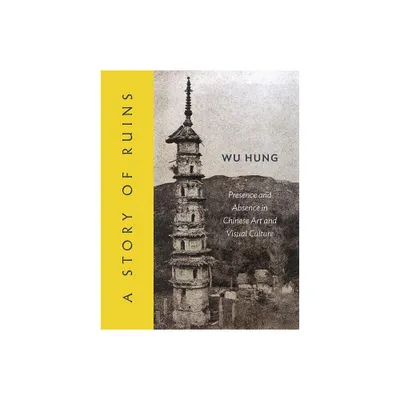Home
Flaubert The Ruins of Paris: Story a Friendship, Novel, and Terrible Year
Loading Inventory...
Barnes and Noble
Flaubert The Ruins of Paris: Story a Friendship, Novel, and Terrible Year
Current price: $32.00


Barnes and Noble
Flaubert The Ruins of Paris: Story a Friendship, Novel, and Terrible Year
Current price: $32.00
Loading Inventory...
Size: Hardcover
*Product Information may vary - to confirm product availability, pricing, and additional information please contact Barnes and Noble
From a distinguished literary historian, a look at Gustave Flaubert and his correspondence with George Sand during France's "terrible year" summer 1870 through spring 1871
From the summer of 1870 through the spring of 1871, France suffered a humiliating defeat in its war against Prussia and witnessed bloody class warfare that culminated in the crushing of the Paris Commune. In
Flaubert in the Ruins of Paris
, Peter Brooks examines why Flaubert thought his recently published novel,
Sentimental Education
, was prophetic of the upheavals in France during this "terrible year," and how Flaubert's life and that of his compatriots were changed forever.
Brooks uses letters between Flaubert and his novelist friend and confidante George Sand to tell the story of Flaubert and his work, exploring his political commitments and his understanding of war, occupation, insurrection, and bloody political repression. Interweaving history, art history, and literary criticism-from Flaubert's magnificent novel of historical despair, to the building of the reactionary monument the Sacré-Cœur on Paris's highest summit, to the emergence of photography as historical witness-Brooks sheds new light on the pivotal moment when France redefined herself for the modern world.
From the summer of 1870 through the spring of 1871, France suffered a humiliating defeat in its war against Prussia and witnessed bloody class warfare that culminated in the crushing of the Paris Commune. In
Flaubert in the Ruins of Paris
, Peter Brooks examines why Flaubert thought his recently published novel,
Sentimental Education
, was prophetic of the upheavals in France during this "terrible year," and how Flaubert's life and that of his compatriots were changed forever.
Brooks uses letters between Flaubert and his novelist friend and confidante George Sand to tell the story of Flaubert and his work, exploring his political commitments and his understanding of war, occupation, insurrection, and bloody political repression. Interweaving history, art history, and literary criticism-from Flaubert's magnificent novel of historical despair, to the building of the reactionary monument the Sacré-Cœur on Paris's highest summit, to the emergence of photography as historical witness-Brooks sheds new light on the pivotal moment when France redefined herself for the modern world.


















